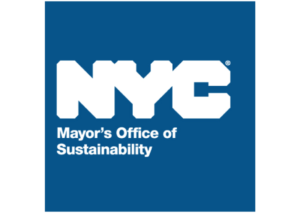DCAS – Maximilian Stiefel – 2016
Goals
The Department of Citywide Administrative Services (DCAS) enlisted EDF Climate Corps fellow Maximilian Stiefel for help determining whether specific building types can be targeted during summer months to reduce electricity demand and GHG emissions. While some buildings maintain a consistent electricity demand response rate, others ramp up very quickly at high temperatures, putting pressure on building air conditioning systems in the hot summer months, raising utility costs and worsening air quality. Max’s goal was to identify demand peaks based on certain conditions and building typologies, as well as suggest ways to mitigate those factors
Solutions
After reviewing historical hourly temperature, humidity and electricity data, Max created a prototype model that enables this type of information to be analyzed. Users can plug energy data from a specific building into the model and see how it responds to temperature variations. Having the ability to visualize these trends gives DCAS the opportunity to work with building operations staff on optimizing building performance. Using his model, Max concluded that building characteristics, such as big, small, new, and old, impact the overall effect and rate of change for electricity demand. Small, old and less insulating constructions in particular, should receive greater attention to ensure electricity demands are kept low, as well as avoid peak demand surcharges and excess GHG emissions.
Potential Impact
The results from this study will help DCAS better understand how electricity demand peaks and consumption varies across different types of buildings, as well as how best practice energy management strategies can improve accordingly. Max’s findings gave support to the idea that building characteristics play an important role in the weather-electricity demand relationship. Innovative energy management approaches like these will make a difference as cities increasingly strive towards carbon neutrality.
- Data Analysis








